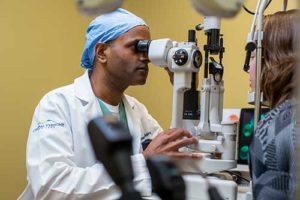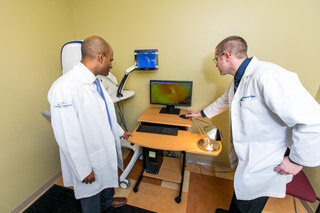Comprehensive Eye Care

The road to good eye health begins with regular comprehensive examinations by a qualified eye care provider.
In a typical examination, your eye doctor will test your eyes and determine your best-corrected vision; this process is called refraction. If eyeglasses are needed, they will be prescribed. A detailed examination of all the structures of your eyes is then performed, including measurement of your intraocular pressure and a dilated fundus examination. These tests are required to diagnose and monitor conditions like glaucoma, cataracts, dry eyes, and macular degeneration.
Depending on your eyes, additional diagnostic tests may be performed or scheduled. At Central Vermont Eye Care, we are committed to utilizing the latest proven technologies to help you preserve the best vision possible.
Our list of diagnostic equipment is constantly changing and being upgraded:

- corneal pachymetry
- static perimetry (visual field testing)
- digital fundus photography
- scanning laser optic nerve and retinal imaging
- computer-assisted topography
- immersion A-scan ultrasonography
- automated refraction and keratometry
- B-scan ultrasonography
- ultra-wide field imaging (Optos)
- optical biometry
- electrophysiology testing (VEP and ERG)
Most patients are able to drive themselves to and from their appointments, but some people may have difficulty doing so. If you have any concerns, please speak to a member of our staff either before or during your appointment.


